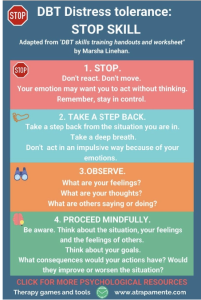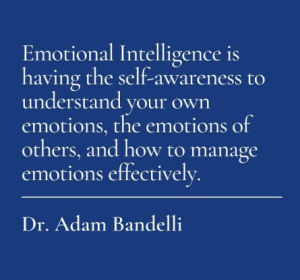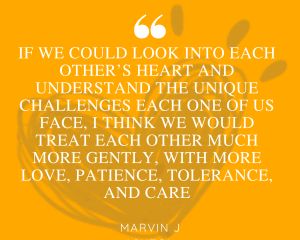How to Be A Good Friend (for Teen Girls)
How to Be A Good Friend (for Teen Girls)
Teen girls often talk about how other people in their lives should be a good friend. And yet you often seclude yourselves from the same expectation. (Adults do this too). WHY? Bet when you are pointing the finger to others 3 fingers point right back at cha! Now how can you be better at this friend thing in life?
Here are the top 3 ways I have discovered to be a good friend. Things I have learned through life experience and working with families and teen girls:
(If you already know this is an area you would like support in, know that I pride myself on my holistic approach to caring for your mental health. I come from a trauma informed background that looks through an intersectional lense to give you services that meet your needs. Alberta residents can book a free consultation with me below).
Book A Free ConsultationHow to Be A Good Friend Strategy #1: Self Compassion

Photo by Hala Al-Asadi on Unsplash
It all starts with you… Everything starts with the self. You! How do you treat yourself? Do you treat yourself with care, love and support? If you are overly critical towards yourself, you may have a tendency of being overly critical with others. What would treating yourself with compassion mean or look like? And from there how can you extend the same level of grace to others? What would being more curious mean than being judgmental?
Note: this does not mean tolerating disrespect, being bullied, pressured or allowing others to flake on you. Extending grace and tolerating being mistreated are different things.
How to Be A Good Friend Strategy #2: Authenticity
Do you show up as your true authentic self? Or is there some sort of code switch in order to fit in? What’s the worst that could happen if you showed up as you? People might no longer like you or be friends with you. Well they were not your friends to begin with. I mean who hates authenticity? Someone’s true self without blinds and folders.
Being your authentic true self does not mean opening yourself up to everyone. It means being able to show up as you, the person in the mirror, flaws and all, embracing your complete sense of humanity – being imperfectly perfect.
Your life and existence is not a performance. Show up as you and the world and everything else will adjust. Your self-worth is not tied to other people’s views or expectations of you. It’s an independent construct so treat it as such. You are worth it just because you are.

Photo by Tyler Nix on Unsplash
How to Be A Good Friend Strategy #3: Communication
What’s your communication style like? Is it your way or the highway? Is there room to hear each other out, ask for space when needed, or carry on with the
conversation at a later time? Do you socially and emotionally distance yourself when things get hard or when you don’t get your way? How do you find your way in life?
I would be curious to know why you respond the way you do to the above questions. Are there other alternatives to your current responses? If so, what could they be?
What does healthy and effective communication look like to you?
At the end of the day it takes two to tango, including yourself. So you are not exempt from communicating. TA DAAA! What a surprise, hey?
Are you jumping into conclusions or do you make space to ask for clarity in order to avoid assumptions and confusion?
I want you to know this is not a personal attack. This is simply a personal reflective practice or journal entry you can engage in. Even for myself as I write this, I am holding space for my triggers (cringe).

Photo by Thought Catalog on Unsplash
If you want to dive further into this exercise, here are a few more questions:
- Are you assertive with your boundaries…. being able to express or communicate your needs and wants and also allowing space and room for others to do the same?
- Is there space to hold feelings, have difficult conversations, and resolve conflict? Or people are no longer good because they made a mistake?
- Do you respect your boundaries and those of others? Are you vengeful and passive in your setting of boundaries or do you create them in order to take care of yourself and keep the relationship strong?
- Is there room for accountability, empathy and constructive criticism for growth?
If these questions brought things up for you, felt like an attack, or made you react defensively, there is something there for you to work on. I offer a neutral, quiet space to work through your triggers here. Book your free consultation with me here:
Book A Free ConsultationJust remember, the most important thing:
Be the friend you want to have.
Love,
Chipo
Register Social Worker offering counseling for teen girls

I am a registered social worker with a Bachelor of Social Work with a major in psychology from the university of the Western Cape, and a Master’s in Clinical Social Work specialization with individuals, families, and groups from the University of Calgary.
In my practice, I note the different intersectionalites that come into play, and I have adapted myself to understanding the effects thereof. I pride myself in working from a holistic and integrative approach using trauma-informed, anti-oppressive, and intersectional lenses in rendering services.
I am grounded by embracing my full humanness-being imperfectly perfect. My faith, family and friendships carry me through life and its happenings. I find being in nature very healing and so is savouring moments. When not working, I love to engage in some fitness, going on walks, journaling, catching up on Korean series, city adventures and reading for pleasure. I also believe in allowing my inner child come out sometimes through art, dancing, building sand castles you name it.














